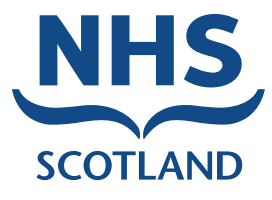Stress Awareness Month: What does healthy food say about our wellbeing!

We all wish and try to eat better for various personal reasons; lose weight, reduce the risk of illness, improve sleep, or enjoy a better quality and longer life. However, our food choices also play a powerful role in our daily activities, ability to focus, think, be creative and productive or follow our passions.
Throughout Stress Awareness Month, at OneMedical Group, we aim to help you to reduce stress and take a few more steps on your wellbeing path.
A handy way to start and maintain a healthy diet is to ensure you eat 3 meals per day and 1-2 snacks every 3 to 4 hours. This will help stabilise blood sugar levels – which start to decrease after a few hours – and are a sign of fatigue. Having healthy meals at fixed times will also help stabilise cravings and train our bodies to recognise if we are hungry versus stressed or worried. Another tip here is that any food will do when we are hungry; when it's just a craving, we want to eat something specific, like sugary sweets or fast food.
To know what you're eating, understand what's in your foods will help make healthier choices. Nutrition labels can help you select among many products and choose between similar products. Food labels can also help us check the amount of foods high in fats, salt, or added sugars (experts recommend opting for foods with 5g of sugar per 100g of product). Nutrition labels are often displayed as a panel or grid on the back or side of the packaging. This label includes energy (kJ/kcal), fat, saturates (saturated fat), carbohydrate, sugars, protein and salt. It may also provide additional information on specific nutrients, such as fibre. All nutrition information is provided per 100 grams and sometimes per portion.
Our OneWellness team recently ran their third FREE Festival of Wellbeing. Alongside fitness or dance cardio classes led by health professionals, workshops focussed on 'Nutrition for Energy & Positive Mental Wellbeing' to highlight how important nutrition is for a good, energetic mood. For example, certain foods can help reduce cortisol levels, which is the primary hormone responsible for stress released by the adrenal gland releases when your body perceives stress. Cortisol causes an increase in your heart rate and blood pressure. Stress-relieving foods range from fish, poultry, fruits, vegetables, whole grains, and healthy fats.
The goal is to eat foods that reduce inflammation in your body, which means fewer processed foods and more whole foods. Fortified whole grains and some animal sources have many B vitamins, particularly vitamin B12 - Beef, chicken, eggs, and cereals. Eat avocados, salmon, sardines and walnuts for omega-3 and magnesium-rich foods hugely beneficial for metabolising cortisol and relaxing the body and mind, such as bananas, broccoli, dark chocolate and spinach.
On average, women need about 46 grams of protein and men need around 56 grams of protein, but it can vary. For example, one egg = 6 grams of protein. Protein is the powerhouse nutrient. It helps your body grow and maintain muscles, skin, hair and nails, and blood vessels. Protein also plays a crucial role in balancing blood sugar levels and synthesising hormones and enzymes in your body. Popular Protein-rich foods are meat, fish, poultry, beans, almonds, eggs, lentils and quinoa.
Healthy eating tips for Stress Awareness Month and beyond
At home or work, it's easy to graze throughout the day and not stick to a routine. Make sure you keep to your usual mealtime routines and avoid excessive snacking – ideal for stressing moments when we feel the need to chew something constantly. Foods high in healthy fats like avocado and nuts are more satisfying than foods naturally high in protein and keep you feeling fuller for longer. Try opting for healthy options such as mixed nuts, carrots, fruits or even some crispy baked chickpeas to keep you going until your next meal.
It's essential to ensure you are getting as many nutrient groups into your diets as possible; an easy way to do this is by eating various coloured foods. The colours in fruit and vegetables can tell us about their nutritional value. When making meals, try and aim for at least half of the plate made up of vegetables.
Where possible, cut out any unnecessary preservatives and ingredients such as resins and emulsifiers. If you don’t have the time to make your own, try checking the ingredients on products and aim for simple, non-processed food as often as possible.
89% of people in the UK mentioned that they don't drink the recommended 6 glasses of water needed every day and 17% of adults said they don't drink any water daily. This can have significant effects on mood regulation, performance, and physical and psychological energy levels. For example, if we lose 2% of our body water content, we will notice a decrease in performance and cognitive skills of up to 30%, affecting concentration, motivation or daily tasks. In addition, symptoms of headaches, weakness, dry lips and mood swings might follow.
We can ask ourselves – have I stayed hydrated today? It can be easy to forget to stay hydrated, so a handy tip is to set yourself a target to drink by the end of the day. If water isn't your favourite drink, try adding fresh fruits like lemon, cucumber or strawberries to give it some flavour!
For further advice or general wellbeing information, visit the OneWellness Clubs website.
Throughout Stress Awareness Month, at OneMedical Group, we aim to help you to reduce stress and take a few more steps on your wellbeing path.
- Healthy meals and snacks every 3 to 4 hours
A handy way to start and maintain a healthy diet is to ensure you eat 3 meals per day and 1-2 snacks every 3 to 4 hours. This will help stabilise blood sugar levels – which start to decrease after a few hours – and are a sign of fatigue. Having healthy meals at fixed times will also help stabilise cravings and train our bodies to recognise if we are hungry versus stressed or worried. Another tip here is that any food will do when we are hungry; when it's just a craving, we want to eat something specific, like sugary sweets or fast food.
- Why is it important to check the nutrition label?
To know what you're eating, understand what's in your foods will help make healthier choices. Nutrition labels can help you select among many products and choose between similar products. Food labels can also help us check the amount of foods high in fats, salt, or added sugars (experts recommend opting for foods with 5g of sugar per 100g of product). Nutrition labels are often displayed as a panel or grid on the back or side of the packaging. This label includes energy (kJ/kcal), fat, saturates (saturated fat), carbohydrate, sugars, protein and salt. It may also provide additional information on specific nutrients, such as fibre. All nutrition information is provided per 100 grams and sometimes per portion.
- Cortisol and stress-relieving foods
Our OneWellness team recently ran their third FREE Festival of Wellbeing. Alongside fitness or dance cardio classes led by health professionals, workshops focussed on 'Nutrition for Energy & Positive Mental Wellbeing' to highlight how important nutrition is for a good, energetic mood. For example, certain foods can help reduce cortisol levels, which is the primary hormone responsible for stress released by the adrenal gland releases when your body perceives stress. Cortisol causes an increase in your heart rate and blood pressure. Stress-relieving foods range from fish, poultry, fruits, vegetables, whole grains, and healthy fats.
The goal is to eat foods that reduce inflammation in your body, which means fewer processed foods and more whole foods. Fortified whole grains and some animal sources have many B vitamins, particularly vitamin B12 - Beef, chicken, eggs, and cereals. Eat avocados, salmon, sardines and walnuts for omega-3 and magnesium-rich foods hugely beneficial for metabolising cortisol and relaxing the body and mind, such as bananas, broccoli, dark chocolate and spinach.
- Proteins – do we have enough to provide us with energy throughout the day?
On average, women need about 46 grams of protein and men need around 56 grams of protein, but it can vary. For example, one egg = 6 grams of protein. Protein is the powerhouse nutrient. It helps your body grow and maintain muscles, skin, hair and nails, and blood vessels. Protein also plays a crucial role in balancing blood sugar levels and synthesising hormones and enzymes in your body. Popular Protein-rich foods are meat, fish, poultry, beans, almonds, eggs, lentils and quinoa.
Healthy eating tips for Stress Awareness Month and beyond
- Utilise proteins and healthy fats to stay full and stop snacking
At home or work, it's easy to graze throughout the day and not stick to a routine. Make sure you keep to your usual mealtime routines and avoid excessive snacking – ideal for stressing moments when we feel the need to chew something constantly. Foods high in healthy fats like avocado and nuts are more satisfying than foods naturally high in protein and keep you feeling fuller for longer. Try opting for healthy options such as mixed nuts, carrots, fruits or even some crispy baked chickpeas to keep you going until your next meal.
- Colour is key
It's essential to ensure you are getting as many nutrient groups into your diets as possible; an easy way to do this is by eating various coloured foods. The colours in fruit and vegetables can tell us about their nutritional value. When making meals, try and aim for at least half of the plate made up of vegetables.
- Cut down on processed foods
Where possible, cut out any unnecessary preservatives and ingredients such as resins and emulsifiers. If you don’t have the time to make your own, try checking the ingredients on products and aim for simple, non-processed food as often as possible.
- Drink plenty of water
89% of people in the UK mentioned that they don't drink the recommended 6 glasses of water needed every day and 17% of adults said they don't drink any water daily. This can have significant effects on mood regulation, performance, and physical and psychological energy levels. For example, if we lose 2% of our body water content, we will notice a decrease in performance and cognitive skills of up to 30%, affecting concentration, motivation or daily tasks. In addition, symptoms of headaches, weakness, dry lips and mood swings might follow.
We can ask ourselves – have I stayed hydrated today? It can be easy to forget to stay hydrated, so a handy tip is to set yourself a target to drink by the end of the day. If water isn't your favourite drink, try adding fresh fruits like lemon, cucumber or strawberries to give it some flavour!
For further advice or general wellbeing information, visit the OneWellness Clubs website.





